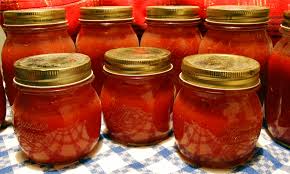
FEATURE — A recent study shows that using electric pressure cookers for small batch, low-acid canning may not destroy the bacteria that is responsible for botulism poisoning.

Electric pressure cookers such as the”Instant Pot” and the “Power Pressure Cooker XL” have become increasingly popular in recent years and have been hailed for their versatility. Some manufacturers even claim the devices can be used for pressure canning.
However, canning experiments recently conducted dispute these claims, according to preliminary findings of a research project conducted by Utah State University Extension professors.
The study shows that electric pressure cookers do not always reach or sustain the temperatures necessary for canning low-acid foods, such as vegetables, beans, meats, poultry, fish and soups, safely at Utah altitudes.
“We knew from previous USU Extension research that altitude affects temperatures in electric pressure cookers, and we’ve heard rumors of community groups having classes about pressure canning in ‘smart cookers,’ so we knew it was time to do some research,” said Cathy Merrill, USU Extension faculty and project research lead.
Merrill went on to say the U.S. Department of Agriculture has recommended that electric pressure cookers not be used for canning “and now we have our own data showing that they just don’t hit the high temperature needed for canning safely at our altitudes.”

An odorless, tasteless poison called botulism toxin can form if the correct temperatures are not met while canning low-acid food, Merrill said.
According to the Mayo Clinic, symptoms of foodborne botulism poisoning include difficulty in breathing or swallowing, blurred or double vision, nausea, vomiting, abdominal cramps and paralysis.
Ultimately, botulism poisoning can cause nerve damage and even death.
Experts suggest traditional stove-top pressure canners be used for low-acid home pressure canning that is USDA approved.
More information can be found by contacting your local Utah State University Extension office or by clicking here.
Written by SHELBY RUUD, Utah State University Extension researcher.
Email: [email protected]
Twitter: @STGnews
Copyright St. George News, SaintGeorgeUtah.com LLC, 2019, all rights reserved.